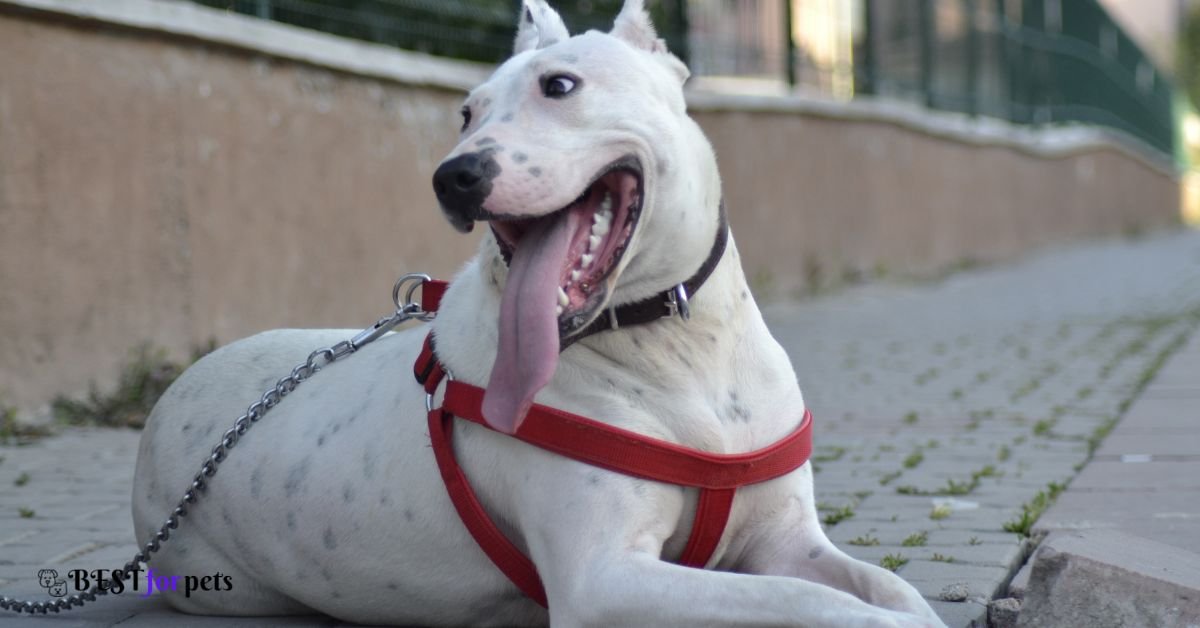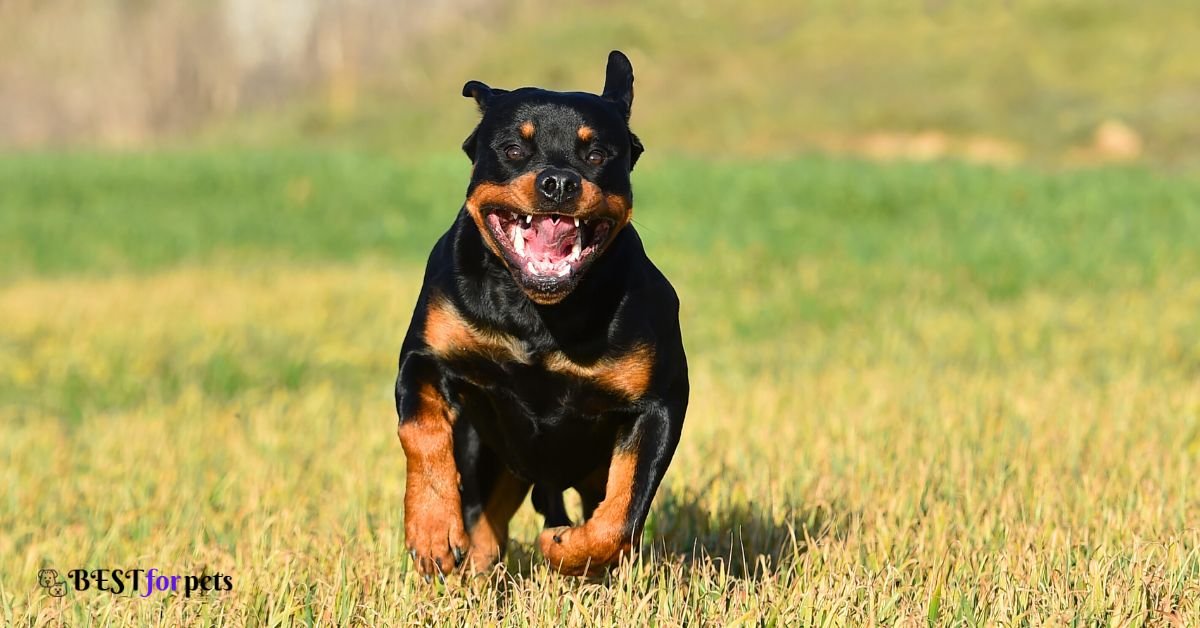Dogo Argentino Vs Rottweiler Comparison
Dogo Argentino vs Rottweiler: History and Origins
Dogo Argentino: The Dogo Argentino, also known as the Argentine Mastiff, boasts a relatively recent and fascinating history. Bred in Argentina in the early 20th century by Dr. Antonio Nores Martinez, it was intended to be a versatile big-game hunting dog.
Dr. Martinez crossed several breeds, including the Cordoba Fighting Dog, Great Dane, Spanish Mastiff, and Bull Terrier, to create this majestic breed. The Dogo’s primary purpose was to assist in hunting dangerous game like wild boar and puma.
Rottweiler: In contrast, the Rottweiler has ancient origins dating back to Roman times. These dogs were originally bred as herders and guard dogs for Roman legions during their conquests. Over centuries, the breed’s role evolved to cattle herding and guarding, particularly in the German town of Rottweil. Hence, the name “Rottweiler” was born. They are a testament to canine history and are known for their tenacity and working prowess.
Dogo Argentino vs Rottweiler: Temperament
Dogo Argentino: Dogo Argentinos are renowned for their loyalty and protective instincts. They form deep bonds with their families and are generally gentle with children. However, their territorial nature may make them cautious around strangers. Early socialization and training are vital to harness their bravery and ensure they are well-behaved companions and formidable guard dogs.
Rottweiler: Rottweilers are known for their self-assured and confident temperament. They are exceptionally loyal to their families and excel as watchdogs. With proper socialization and training, they become well-mannered and trustworthy companions. Their intelligence allows them to thrive in various roles, from search and rescue to therapy dogs.

Dogo Argentino vs Rottweiler: Appearance and Characteristics
Dogo Argentino: Dogo Argentinos are imposing in appearance, characterized by their muscular build and all-white coat. Their distinctive physical traits include a broad head, powerful jaws, and a height ranging from 24 to 27 inches (61-68 cm).
Their pristine white coat is often complemented by a small black spot on their nose or eye. These dogs exude strength and athleticism.
Rottweiler: Rottweilers, known for their robustness, feature a striking black coat with rich tan markings on their face, chest, legs, and paws. They possess a formidable head, expressive dark eyes, and a height ranging from 22 to 27 inches (56-69 cm). These dogs are slightly taller and heavier than Dogo Argentinos, showcasing their sturdy and powerful frame.

Dogo Argentino Vs Rottweiler : Health
Dogo Argentino:
While generally healthy, Dogo Argentinos may be susceptible to specific health issues. These include hip dysplasia, deafness (more common in white-coated individuals), hypothyroidism, and skin allergies. Regular veterinary check-ups, a balanced diet, and exercise can help mitigate these concerns.
Rottweiler:
Rottweilers are robust dogs, but they can be prone to certain health conditions. These include hip and elbow dysplasia, osteosarcoma (bone cancer), aortic stenosis (a heart condition), and bloat (gastric torsion). Responsible ownership, including regular veterinary care and a healthy lifestyle, is crucial for their well-being.
Dogo Argentino Vs Rottweiler : Trainability
Dogo Argentino:
Trainability can vary among individual Dogo Argentinos. They are intelligent dogs and can learn quickly, but their independent nature may lead to occasional stubbornness. Early socialization and consistent, positive reinforcement-based training are crucial for their development.
With the right approach, they can become well-behaved and obedient companions. However, it’s important to note that due to their protective instincts, training should emphasize proper socialization to ensure they are comfortable around other dogs and people.
Rottweiler:
Rottweilers are generally highly trainable, thanks to their intelligence and eagerness to please. They respond well to consistent, positive reinforcement methods and thrive on structured training.
With early socialization and proper guidance, Rottweilers can develop into well-mannered dogs that excel in various roles, from family pets to working dogs. Their loyalty and quick learning ability make them a favorite among dog trainers and enthusiasts.
Dogo Argentino Vs Rottweiler: Bark
Dogo Argentino:
Dogo Argentinos are not typically known for excessive barking. They tend to be more reserved and selective when it comes to vocalization. However, they may bark to alert their owners to perceived threats or intruders due to their protective nature. Proper socialization can help mitigate any unwarranted barking tendencies, ensuring that they bark only when necessary.
Rottweiler:
Rottweilers are not excessive barkers either, but they do have a protective instinct that may lead to occasional barking when they sense a potential threat. They are generally not known to be yappy dogs and tend to be quiet and composed unless provoked or trained to alert their owners.
Dogo Argentino Vs Rottweiler : Adaptability
Dogo Argentino:
Dogo Argentinos are adaptable to different living situations, provided they receive adequate exercise and mental stimulation. They can thrive in both urban and rural environments, but they do best in homes with secure yards due to their protective instincts. Their thick coat may make them more suitable for cooler climates.
Rottweiler:
Rottweilers are adaptable dogs that can adjust well to various living conditions. They are equally comfortable in urban and suburban settings as they are in more rural areas. While they can handle different climates, they may be more sensitive to extreme heat due to their dark coat. Adequate shelter and hydration are crucial in hot weather.
Dogo Argentino Vs Rottweiler : Nutrition
Dogo Argentino:
Dogo Argentinos require a balanced diet that meets their specific energy needs. High-quality commercial dog food or a homemade diet under the guidance of a veterinarian can work well. Portion control is important to prevent obesity, as this breed can be prone to weight gain. It’s essential to monitor their diet and adjust it according to their age, activity level, and any health concerns.
Rottweiler:
Rottweilers also benefit from a balanced diet that supports their size and activity level. High-quality commercial dog food that lists meat as the primary ingredient is a good choice. Like Dogo Argentinos, Rottweilers can gain weight if overfed, so portion control is essential. It’s also crucial to be mindful of their risk for bloat, a condition that can be influenced by the timing of meals and exercise. Feeding smaller, more frequent meals may help reduce this risk.
Frequently Asked Questions
Which breed is more suitable for families with children, the Dogo Argentino, or the Rottweiler?
Both breeds can be good family dogs when properly trained and socialized. However, Rottweilers are often considered more suitable for families with children due to their protective and gentle nature. Dogo Argentinos can be protective as well, but their temperament may vary, and early socialization is critical to ensure they are comfortable around kids.
Which breed is better for first-time dog owners, the Dogo Argentino, or the Rottweiler?
Rottweilers are generally more adaptable to first-time dog owners because of their trainability and eagerness to please. Dogo Argentinos, while not impossible for beginners, may require more experienced owners due to their protective instincts and potential stubbornness.
Are Dogo Argentinos and Rottweilers good with other pets?
Both breeds can coexist with other pets, but socialization from an early age is crucial. Dogo Argentinos have a strong prey drive, so they may not be the best choice if you have small pets like cats or rabbits. Rottweilers can get along with other animals when properly introduced and trained.
How do I choose between a Dogo Argentino and a Rottweiler?
Your choice should depend on your lifestyle, preferences, and experience as a dog owner. If you want a protective and loyal dog with a striking appearance and are willing to put in the effort for training and socialization, a Dogo Argentino might be a good choice. If you prefer a confident and versatile breed that is generally easier to train, a Rottweiler may be a better fit.
What are the exercise requirements for these breeds?
Both Dogo Argentinos and Rottweilers require regular exercise to stay healthy and happy. They benefit from daily walks, playtime, and mental stimulation. Dogo Argentinos may need slightly more exercise due to their higher energy levels.

